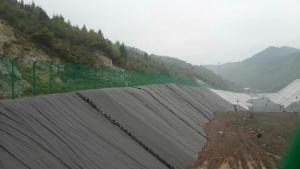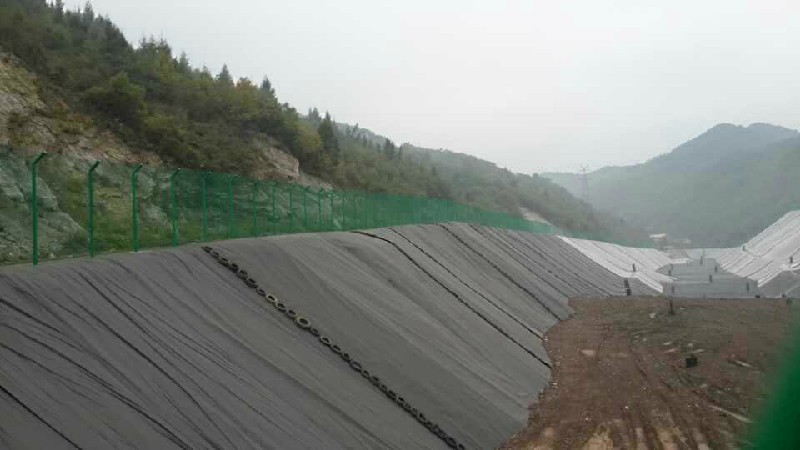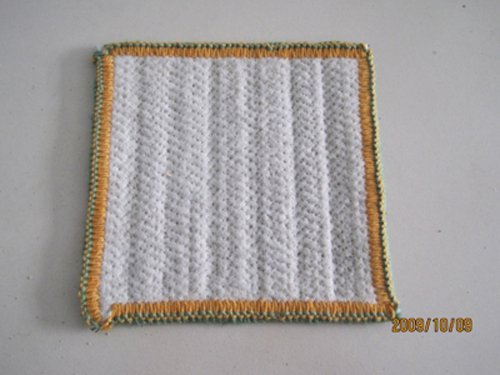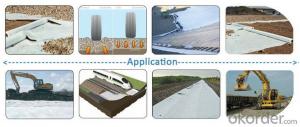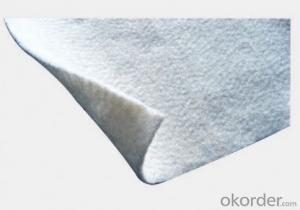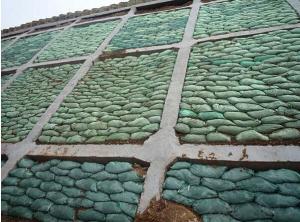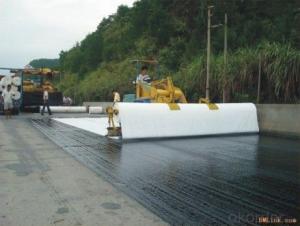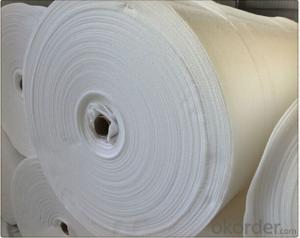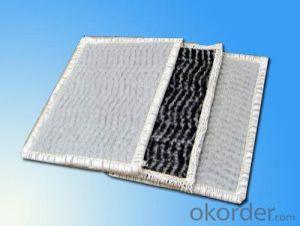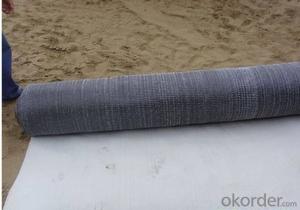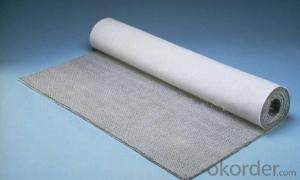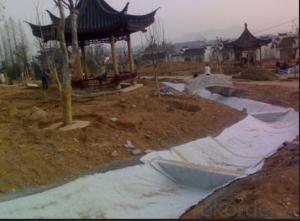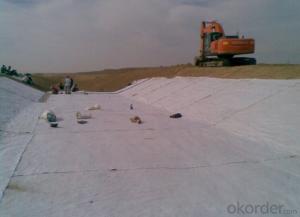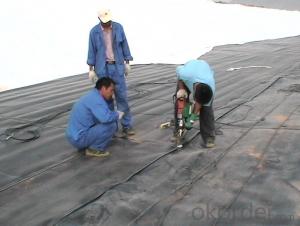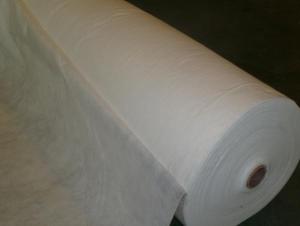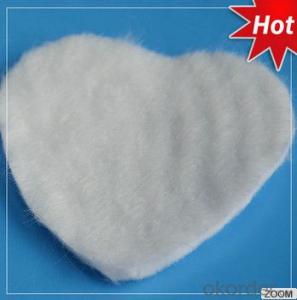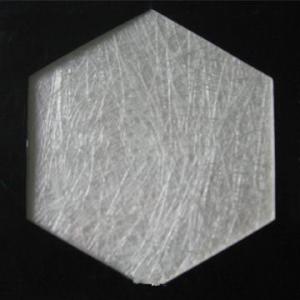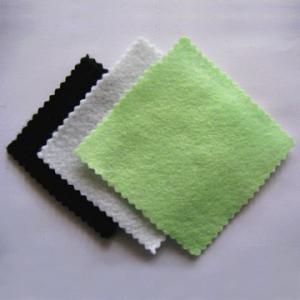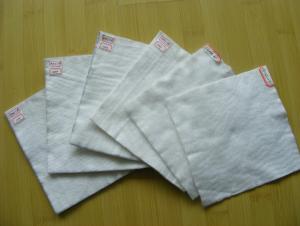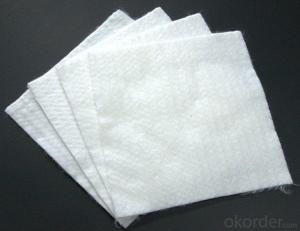Geotextile Tds Geosynthetic Clay Layer for River Bank and Landfill Projects
- Loading Port:
- Tianjin
- Payment Terms:
- TT OR LC
- Min Order Qty:
- -
- Supply Capability:
- 5000rolls m²/month
OKorder Service Pledge
OKorder Financial Service
You Might Also Like
Geosynthetic Clay Layer for River bank and landfill projects
Made from two layers geotextile with natural sodium in the centre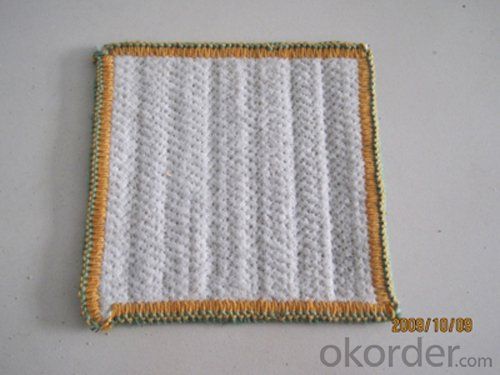
Specification of Geosynthetic Clay Layer for River bank and landfill projects:
I. GCL-NP; GCL-OF; GCL-AH
2. Unit weight: >4000G/M2
3.4m - 6m in roll width
Property of Geosynthetic Clay Layer for River bank and landfill projects:
I. Swell when meet water
2. Long time waterproofing and friendly to environment
3. Separation, reinforcement, protection, filtration and easy for construction
Application of Geosynthetic Clay Layer for River bank and landfill projects
:
I. Municipal project, subway, underground and roof waterproofing
2. Landfill, waste water treatment, industrial waste
3. Waterproofing and reinforcement in water conservancy, riveC lake and dam
4. Artificial lake, golf course and fish pond
5. Petrifaction and mineral waterproofing
Production Standards of Geosynthetic Clay Layer for River bank and landfill projects:
JC/T193-2006
- Q: Geotextile 300g * 600mm * 300g is how is it?
- No you say 300g * 600mm * 300g this specification of the product, according to reason should be 300g * 0.6mm * 300g product 300g * 0.6mm * 300g product is a composite geomembrane specifications, also known as two cloth a film , Composite geotextile. That is, both sides of the upper and lower sides of a layer of 300g geotextile, the middle folder 0.6mm thickness of the plastic film. Composite geomembrane is to play the role of anti-seepage, generally used for water conservancy project seepage, civil engineering seepage and so on. The geotextile is from the water, reinforcement, protection, and can not achieve the role of anti-seepage. 300g * 0.6mm * 300g composite geomembrane price is generally between 11.5-13 yuan. You can do the next reference.
- Q: Where is the geotextile in the municipal works?
- Conservation, consideration, there is more green and more Chinese geotextile material manufacturers
- Q: Are geotextiles suitable for use in geogrid reinforced slopes?
- Yes, geotextiles are suitable for use in geogrid reinforced slopes. Geotextiles can provide separation, filtration, and erosion control functions, which are essential for maintaining the stability and performance of geogrid reinforced slopes.
- Q: Who knows geotextile, how to sew, the best video
- Sewing machine can be sewn, you can also use hot air gun hot melt, I am specializing in the production of geotechnical materials
- Q: How do geotextiles help with reinforcement of geotextile tubes?
- Geotextiles help with the reinforcement of geotextile tubes by providing stability and strength. They act as a barrier, preventing soil erosion and maintaining the shape and integrity of the tube. The geotextile acts as a filter, allowing water to pass through while retaining soil particles, which helps in soil consolidation and prevents the tube from collapsing. Additionally, geotextiles distribute stress evenly across the tube, enhancing its load-bearing capacity and overall performance.
- Q: How do geotextiles affect groundwater flow?
- Geotextiles can either enhance or restrict groundwater flow depending on their permeability and installation method. Permeable geotextiles can allow water to infiltrate through them, facilitating groundwater recharge and promoting natural drainage. Conversely, impermeable geotextiles can prevent water from passing through, altering the natural flow of groundwater and potentially causing waterlogging or surface runoff issues. The selection and proper installation of geotextiles are crucial to ensure they positively impact groundwater flow and maintain the hydrological balance of an area.
- Q: How do geotextiles help with soil confinement in erosion control mats?
- Geotextiles help with soil confinement in erosion control mats by providing a stable and permeable layer that prevents soil erosion. They act as a barrier, holding the soil particles in place while allowing water to pass through, thereby reducing surface runoff and promoting root growth. This prevents the displacement of soil and helps in establishing vegetation, ultimately preventing erosion and improving soil stabilization.
- Q: What is the standard width of geotextile?
- Minimum width of 2 meters.
- Q: What are the factors to consider when selecting geotextiles for mining applications?
- When selecting geotextiles for mining applications, several factors need to be considered. These include the strength and durability of the geotextile to withstand the harsh mining environment, the required filtration and separation properties to prevent soil erosion and maintain stability, the ability to handle high levels of water flow and drainage, and the compatibility of the geotextile with the surrounding soil and materials. Other factors may include the cost-effectiveness, ease of installation, and any specific requirements or regulations set by the mining industry.
- Q: What are the key factors affecting the UV stability of geotextiles?
- The key factors affecting the UV stability of geotextiles include the type of polymer used in their manufacture, the concentration and type of UV stabilizers incorporated into the material, the thickness and density of the geotextile, and the duration and intensity of exposure to UV radiation.
Send your message to us
Geotextile Tds Geosynthetic Clay Layer for River Bank and Landfill Projects
- Loading Port:
- Tianjin
- Payment Terms:
- TT OR LC
- Min Order Qty:
- -
- Supply Capability:
- 5000rolls m²/month
OKorder Service Pledge
OKorder Financial Service
Similar products
Hot products
Hot Searches
Related keywords
